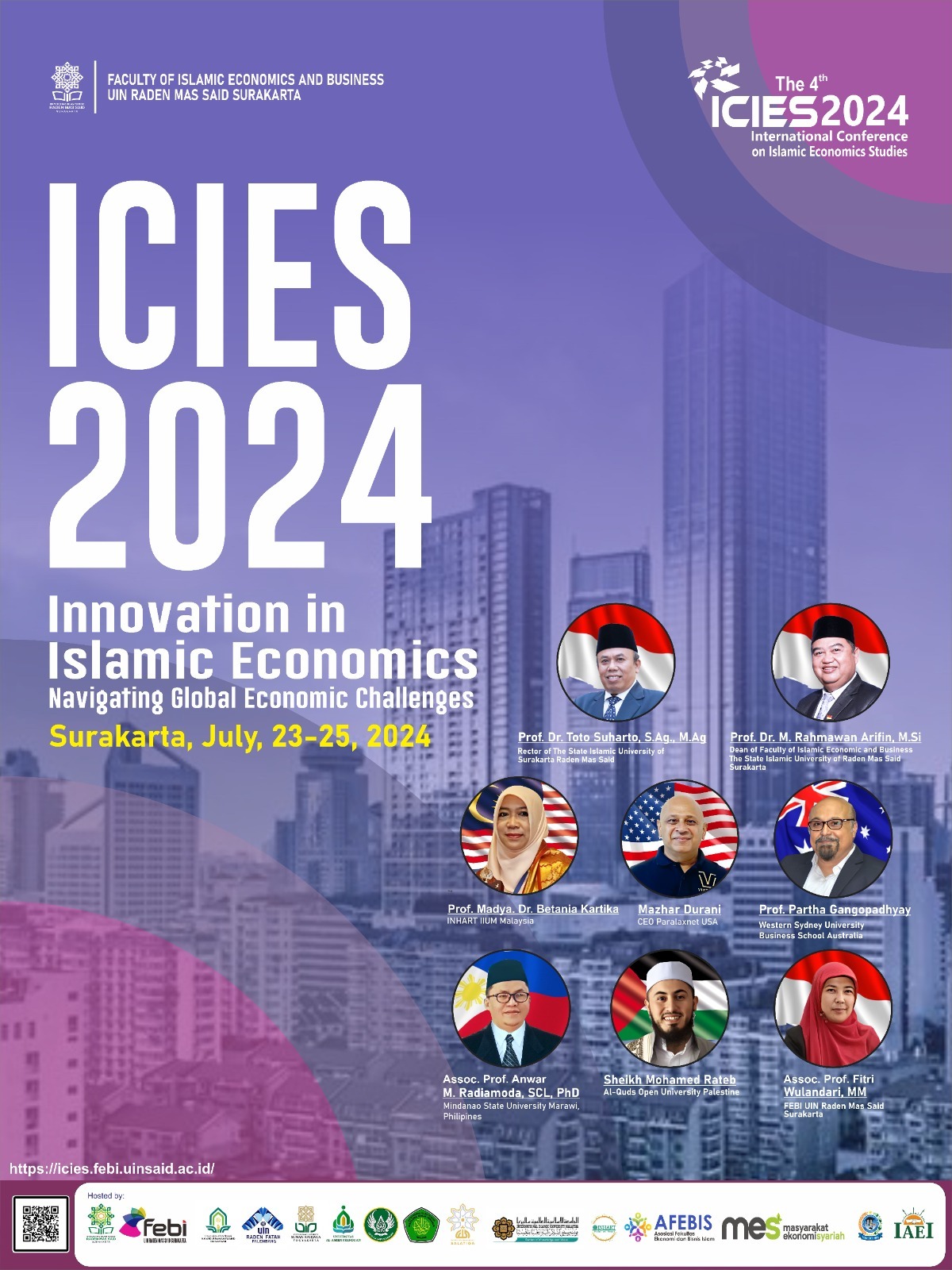Vol. 4 No. 1 (2024): The 4th International Conference on Islamic Economics Studies

The International Conference on Islamic Economics Studies, hosted by the Faculty of Islamic Economics and Business, is set to convene on 23 - 25 of July, 2024. This conference serves as a platform to delve into innovative approaches within the realm of Islamic economics, aiming to address and navigate the complex landscape of global economic challenges. Through insightful discussions and interdisciplinary exchanges, participants will explore the pivotal role of innovation in Islamic economics, offering pragmatic solutions to contemporary economic dilemmas.
Sub-Themes:
- Resilience in Times of Crisis: Exploring how Islamic economic principles foster resilience and fortitude amidst global economic crises.
- Islamic Finance and Sustainable Development: Investigating the contribution of Islamic finance to sustainable development, emphasizing socially and environmentally responsible investment practices.
- Digital Economy and Islamic Ethics: Examining the alignment of digital technology and Islamic ethical principles in business and financial practices within the digital economy.
- Inclusive Growth and Poverty Alleviation: Discussing strategies within Islamic economics to promote inclusive growth and alleviate poverty, prioritizing social justice and equitable distribution.
- Trade and Commerce in Islamic Economics: Analyzing the principles of trade and commerce in Islamic economics and advocating for international cooperation to promote fair and just trade practices.
- Entrepreneurship and Innovation: Highlighting the role of entrepreneurship and innovation in fostering economic development within the Islamic framework, including support mechanisms for Muslim entrepreneurs across various economic sectors.
- Islamic Economic Governance and Regulation: Exploring effective systems of governance and regulation within Islamic economics to ensure transparency, accountability, and adherence to Shariah principles.
- Global Collaboration and Partnerships: Encouraging international collaboration for the advancement of Islamic economics and the establishment of strong partnerships between Islamic and conventional financial institutions worldwide.
Published: 21 March 2025
